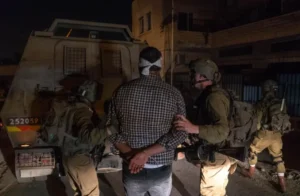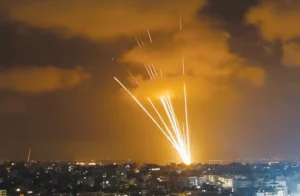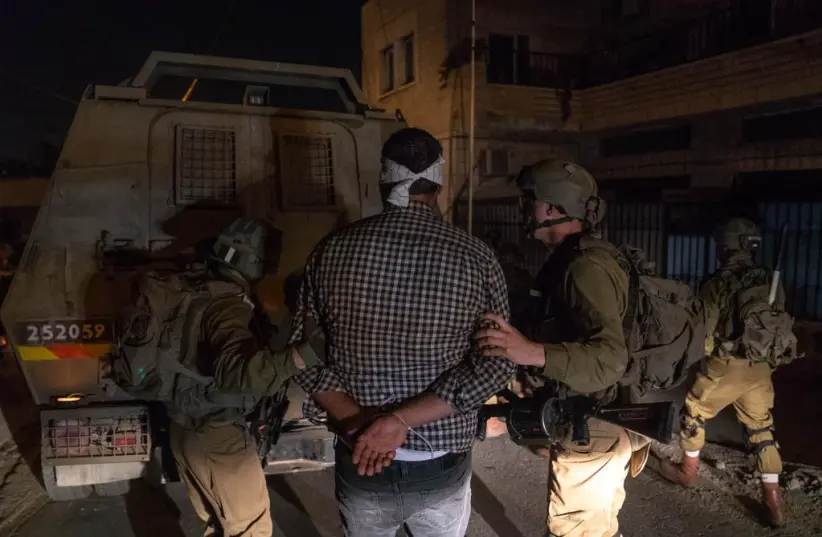Over the weekend, the Palestinian Islamic Jihad launched 1,100 rockets at Israel while the IDF carried out 147 airstrikes against the terror group in Gaza.

A United Nations team visited Palestinian Islamic Jihad leader Bassem al-Saadi in Ofer Prison as one of its top regional officials warned against another outbreak of Gaza violence.
“Today, I dispatched a #UN team to visit Saadi to follow up on UN commitments to maintain calm in #Gaza,” UN Special Coordinator for the Middle East Peace Process Tor Wennesland tweeted late Wednesday night. “I reiterate that the ceasefire in Gaza is very fragile and I call on all sides to preserve the calm.”
He spoke just days after an Egyptian-brokered ceasefire that went into effect late Sunday night ended an intense three days of fighting between the IDF and Islamic Jihad.
It was sparked by Israel’s arrest last Tuesday of Saadi in Jenin and its targeted killing on Friday of Islamic Jihad commander Tayseer al-Jaabari. A UN team visited Saadi’s family in Jenin last week.
Over the weekend Palestinian Islamic Jihad launched 1,100 rockets at Israel while the IDF carried out 147 airstrikes against targets of the group in Gaza, in a military operation it called Breaking Dawn. Hamas did not join the fighting.

The hostilities left 47 Palestinians dead, including 15 children ages 16 and under. Some 21 of those killed were Islamic Jihad-affiliated operatives. Israel’s Iron Dome defense system intercepted rockets that threatened populated areas, preventing any Israeli fatalities. Some 70 Israelis were injured, however, according to UN figures.
Did Israel agree to release Bassem al-Saadi?
Palestinian Islamic Jihad has insisted that Israel promised to release Saadi and administrative detainee Khalil Awawda. It has warned that fighting will resume if that condition is not met. Awawda’s condition has reportedly deteriorated, KAN Reshet Bet reported on Thursday morning.
Defense Minister Benny Gantz told Channel 12 on Tuesday that no such pledge had been made to release prisoners connected to Palestinian Islamic Jihad, which Israel considers to be an Iranian-backed terror group.
Wennesland worked intensely behind the scenes to help achieve a cease-, as did the United States, Qatar and Jordan.
At a UN Security Council debate Monday on the Gaza flare-up, the UN special coordinator said that the ceasefire had its roots in the escalating West Bank violence that has included Palestinian terror attacks against Israelis and IDF operations against Palestinian aggressors.
“Any resumption of hostilities [in Gaza] will only have devastating consequences for Palestinians and Israelis, and make any political progress on key issues elusive.”
Tor Wennesland
He recalled past Israel-Gaza conflicts, including the 11-day war between the IDF and Hamas last May.
“These cycles of violence will only cease when we achieve a political resolution of the conflict” that allows for a two-state solution based on the pre-1967 lines, he said.
“I reiterate my call to the Israeli and Palestinian leadership, along with the international community, to strengthen diplomatic efforts to return to meaningful negotiations toward a viable two-state solution.”

